This Week In Black History March 13-19, 2024
1794—Eli Whitney patents the cotton gin—a device that made cotton production much more profitable by more efficiently separating the seed from the cotton. The invention had the effect of extending the life of slavery in the South. However, there remains a historical dispute as to whether Whitney actually invented the cotton gin as most history books claim. There is some evidence that Whitney’s entire idea was based on a device developed by slaves laboring on the Georgia plantation of Catherine Green. Whitney, a lawyer, worked briefly for Green and it was while working for her that he allegedly invented the cotton gin.
1868—The impeachment trial of President Andrew Johnson began in the United States Senate. The ultimate failure to convict and oust Johnson from the presidency was a major setback for the recently freed slaves. Even though he was Abraham Lincoln’s vice president, Johnson actually favored the former slave owners and the continuation of White power in the South. He was also opposed to Blacks having the right to vote. Although the impeachment and trial weakened him, his continuation as president helped pave the way for the emerging power of the Ku Klux Klan and the denial of rights to Blacks.
1932—The first Black daily newspaper begins publication. The paper was the Atlanta Daily World and it was founded by William A. Scott III.
1821—The African Methodist Episcopal Zion Church is officially formed in New York City. However, the church had been actually operating since 1796. A decision to officially separate from the White-controlled Methodist Church was reached in 1820. The dispute centered in part around the refusal of Whites to allow Black ministers to preach. Among the founders were James Varnick, Abraham Thompson and June Scott. Today the denomination has an estimated 1.2 million members and operates Livingstone College in Salisbury, N.C.
1933— Legendary music composer and producer Quincy Jones is born on this day in Chicago, Ill.
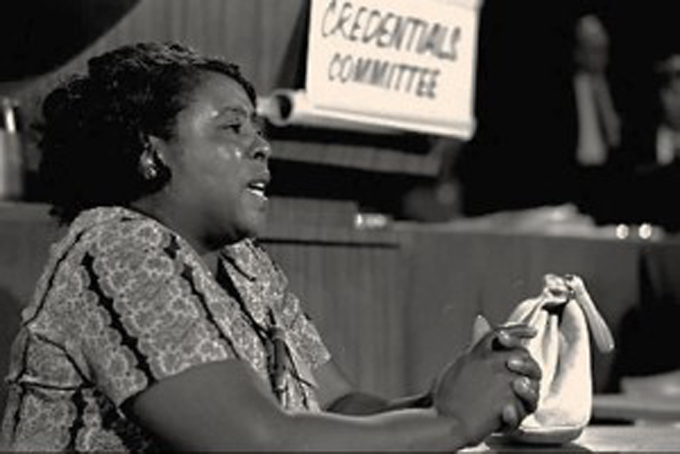
1977—One of the unsung heroines of the Civil Rights Movement, Fannie Lou Hamer, died on this day in 1977. Hamer, the youngest of 20 children born in Ruleville, Miss., became active in voter registration and later became Mississippi field secretary for the Student Non-Violent Coordinating Committee as well as head of the Mississippi Freedom Democratic Party. She also coined the phrase, “I’m sick and tired of being sick and tired.”
1897—The 55th Congress convened with one Black member remaining in the legislative body— George White of North Carolina. All the Black political progress made during Reconstruction had been snatched away after the Hayes-Tilden Compromise of 1887. By 1890 states throughout the South had effectively taken away the right of Blacks to vote with schemes ranging from literacy tests to poll taxes to Whites-only primaries. As a result Blacks were forced from elected office. When White’s term expired in 1901, there would not be another African American elected to Congress for 27 years and he would come from the North— Oscar DePriest of the Southside of Chicago (1st Congressional District of Illinois.)
1827—The first Black-operowned and ated newspaper in America begins publishing. It was Freedom’s Journal. It published weekly in New York City from 1827 to 1829. Editors John Russwurm and Samuel Cornish declared as their mission: “We wish to plead our own cause. Too long have others spoken for us.”
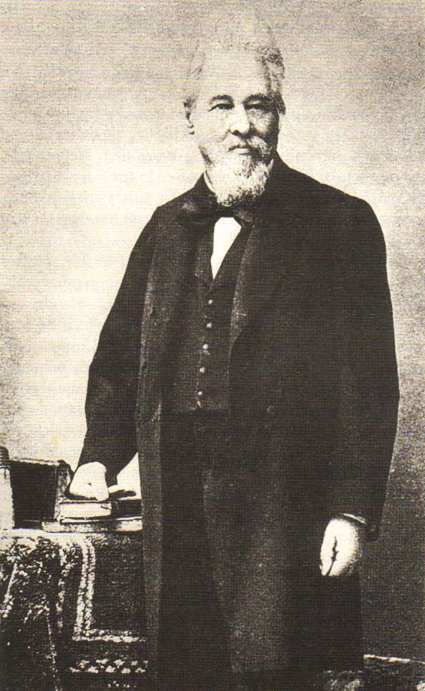
1806—Norbert Rillieux, one of the earliest Black chemical engineers in America or Europe, was born on this day in 1806. The product of a wealthy French plantation owner in New Orleans and his Black mistress, Rillieux was given his freedom and sent to Paris, France, to be educated. He is best known for his invention of the “multiple evaporation process” which revolutionized the sugar and paper industries. It also saved the lives of many who had previously labored in extremely dangerous conditions. Rillieux returned to the U.S., but as conditions for free Blacks deteriorated prior to the Civil War, he went back to Paris and died there in 1894.
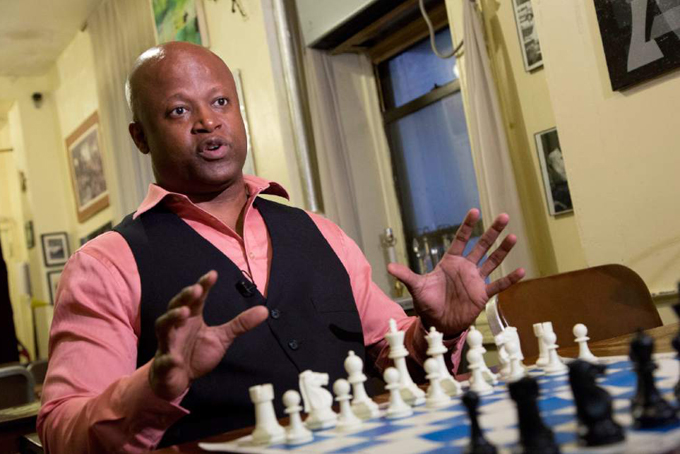
1999—Maurice Ashley, a Jamaican immigrant living in Brooklyn, becomes the first Black grandmaster in modern chess history.
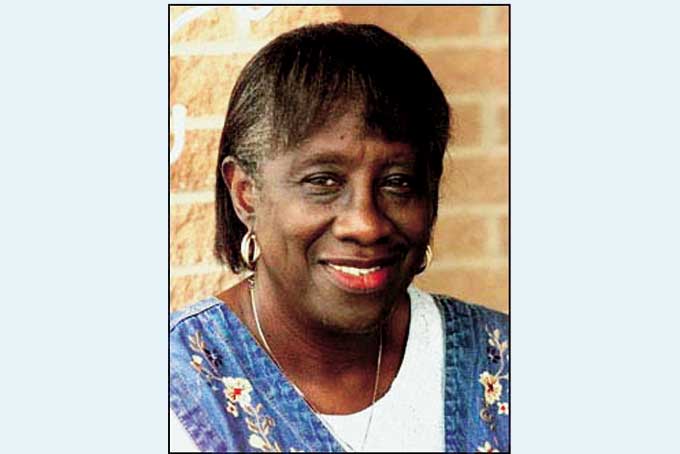
1933—The first Black woman elected mayor of a Mississippi town, Unita Blackwell, was born on this day in Lula, Miss. The former field worker with the Student Nonviolent Coordinating Committee became mayor of Mayersville, Miss., in 1977.

1963—Singer-actress Vanessa Williams, was born on this day in Millwood, N.Y. In 1983, Williams became the first African American woman to win the title of Miss America (Miss America 1984). Williams was forced to resign a few weeks prior to the end of her reign on July 22, 1984 due to a scandal surrounding the publication of unauthorized nude photographs in Penthouse magazine. In 2015, 32 years after being crowned and during the Miss America 2016 pageant (where she was serving as head judge), Miss America CEO Sam Haskell apologized to Williams for what was said to her during the events of 1984.

1970—Actress and rapper Queen Latifah was born on this day in 1970.
1620—The first Black child born in America, William Tucker, was probably born on this date in Jamestown, Va. However, some controversy surrounds the exact date. What we know for sure is that he was the son of two of the first Africans brought to America as indentured servants in August 1619—Anthony (Antonio) and Isabella. We also know he was baptized on Jan. 3, 1624. Further, there is debate as to whether his last name was actually “Tucker.” It seems that many historians simply assumed that the child was given the last name of the man on whose plantation his parents worked. While this would later become the practice on many plantations, there is no documentation that Anthony and Isabella actually gave their son the last name of Tucker.
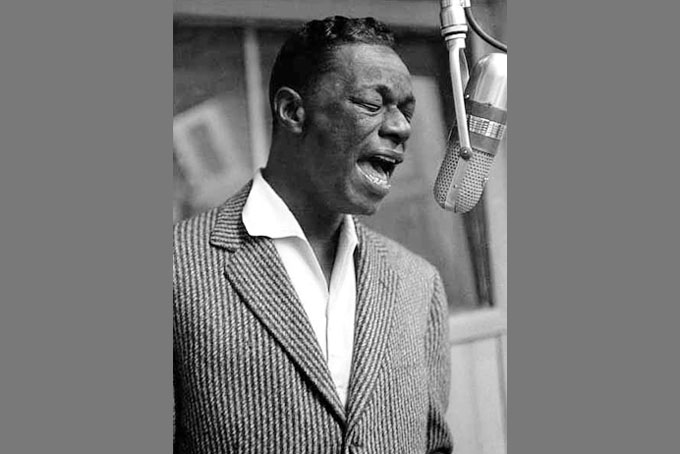
1919—Singer Nat “King” Cole is born in Montgomery, Ala. In addition to his considerable talents as a singer, Cole—the father of Natalie Cole—was the first Black American performer with his own syndicated radio program and later a network television variety show. The TV started at 15 minutes, expanded to half-an-hour, but was then dropped due to lack of White advertiser support.

